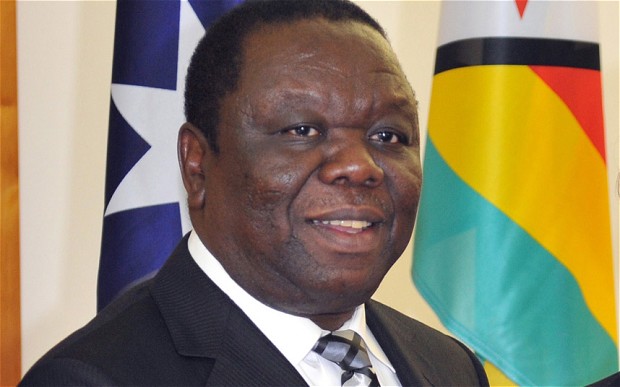
Sixteen years after its formation, the MDC-T does not appear to be any closer to figuring out how to get into power, constitutionally or otherwise.
Sunday Opinion with Nocole Hondo
Given events in the past months, it is evident that the chief cause of the party’s dismal performance in the country’s political scene is the obstinacy and Messiah complex of its leadership.
One can argue that the narcissism exhibited by its leadership over the course of its existence and the refusal to accept sensible ideas from other quarters, has proved to be the MDC-T’s undoing.
This trend has been innocuously but steadily growing over the years having burst into the limelight in 2005 when the party split into two after disagreeing on whether or not to take part in Senatorial elections. Although the party’s National Council voted for participating, Tsvangirai overruled the vote leading to the formation of MDC-N (led by Welshman Ncube) and subsequently, MDC-M (led by Professor Arthur Mutambara).
Several variations of the MDC-T also emerged though their life span was short-lived.
The next notable split in the MDC-T was to occur last year when Elton Mangoma set the cat among the pigeons by justifiably — some might argue — suggesting through a letter that, in the wake of successive defeats at the hands of Zanu PF, it was better for Tsvangirai to step aside as the MDC-T leader and give others a chance.
Typical of their “we are always right” syndrome, the then MDC-T leadership branded him all sorts of names and he was even manhandled by rowdy youths as the leadership watched, arms akimbo. Even when the chorus for renewal of the MDC-T leadership was joined by then Secretary-General, Tendai Biti, the powers- that- be at the MDC-T still refused to heed the advice so freely offered to them.
- Chamisa under fire over US$120K donation
- Mavhunga puts DeMbare into Chibuku quarterfinals
- Pension funds bet on Cabora Bassa oilfields
- Councils defy govt fire tender directive
Keep Reading
Recently, MDC-N and MDC Renewal came up with the idea to unite and form one movement called the United Movement for Democratic Change (UMDC). Whether or not the movement will provide a genuinely better political alternative is a topic for another day. The point to note is that the MDC-T opted not to be part of the union.
It was surprising to then hear the MDC-T subsequently ranting and raving, attacking the UMDC for daring to officially launch. MDC-T deputy spokesperson, Felix Mafa Sibanda sensationally claimed that Zanu PF was behind the formation of the UMDC. Like a spoilt child who finds he has to share a playground, Sibanda claimed: “We know they have been sent.
They deliberately chose Bulawayo because they know that this is our stronghold but I should state that this is not home for dubious formations.”
Apparently on a roll, Sibanda went further to attack the UMDC for not only including the civic society and churches, but also for changing venues. If this is not indicative of a frightened clueless leadership, then the earth is flat.
One wonders why, having chosen to turn their nose up and decline invitations to join with any other opposition movement or change their ideology (or lack thereof), the MDC-T is making such brouhaha over the launching of the UMDC. And if, as Sibanda claims, Bulawayo is their stronghold (previously it has been claimed that Harare is the MDC-T stronghold) why are they opposed to the UMDC launch being held there.
What it points to is an underlying fear on the part of the MDC-T that their gradually, but irrevocably dwindling support base, will diminish even further as some supporters cross over to the UMDC. Why else would they be so rattled by a mere launch?
It is also conceivable that the MDC-T simply does not want to share the decreasing donor funds being poured into the country with any other entity or being. They want to be the sole recipients of this benevolence despite their proven track record of misusing said funds.
Only last week, it was reported that a senior party official failed to account for $500 000 allocated to the party under the Political Parties Finance Act. Rumours abound that the money was squandered by some top officials.
All this ulcer-inducing fear on the part of the MDC-T leadership that manifested in Sibanda’s vicious attack of UMDC and its alleged parent, Zanu PF, could have been avoided. All they have to do is to get off their high horse and accept that their “hate President Mugabe” strategy does not work and benefits no one in the country.
Indeed, they would have been better advised to concentrate their efforts and spokespersons on coming up with and articulating sound people-driven policies.
To be referred to as an opposition party does not entail that the said party should oppose everything and anything that is not proposed by itself. Doing so reduces such entities to meaningless and directionless conduits for the squandering of donors’ money.
If one man tells you that you are too short to reach a certain platform, you can dismiss it as a lie borne of mischief, but if three to 100 people subsequently tell you the same over and over, then it’s time to stop and listen and start wearing high-heeled shoes, if necessary.
Zimbabweans do not need opposition parties that focus on denouncing President Mugabe or other opposition parties without offering viable solutions. Having been taken for a ride, people have rightly realised that enough is enough and quite frankly, the conspiracy theory that Zanu PF sponsors all opposition parties save for MDC-T is now tired and hackneyed.
If the MDC-T was truly as democratic as it claims to be, then it would not feel affronted by the coming in of another player onto the political scene. After all, the Zimbabwean political “tent” is surely big enough to accommodate everyone, even the misguided elements.











